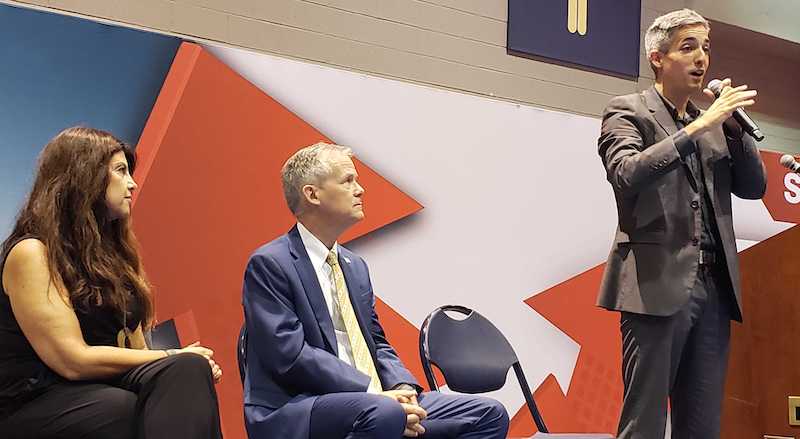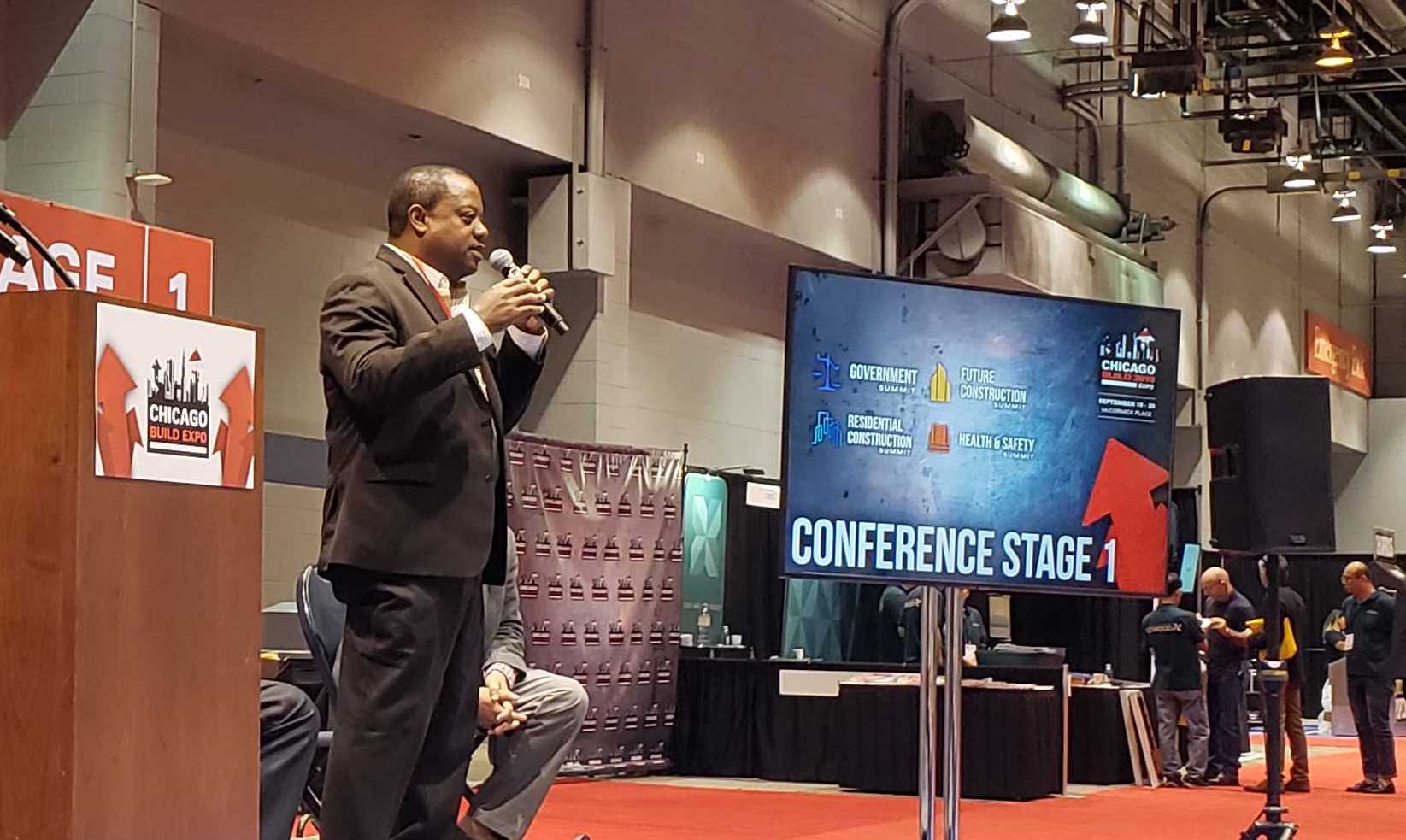The rate of construction in Chicagoland is generally positive, but in order for the city to continue this pace, a number of changes need to take place. That was the general feeling at a panel discussion featuring city officials at Chicago Build Expo, an international conference targeting contractors, developers, real estate professionals and others held at the McCormick Place convention center this week.

Left to right: Commissioner Judy Frydland, Ald. James Cappleman and Ald. Daniel La Spata
Battling preconceptions
Ald. Raymond Lopez, who represents the 15th Ward, highlighted the perception that Chicago is not a good place to do business as a potential roadblock for continuing the current pace of new construction. “We have to temper that with the political climate,” he said. “This move towards punishing developers, punishing people who invest in our neighborhoods, can have a very negative impact.”
Still, the sense that developers are causing long-time residents to be pushed out is an undeniable feeling in the city, one which Ald. Daniel La Spata said inspired him to run for office. La Spata represents Chicago’s 1st Ward, which has seen massive development in the neighborhoods of Logan Square, Ukrainian Village, West Town and Wicker Park. He said he’s found the best way to avoid negative feelings about new construction is through transparency and community involvement. “When they viewed development as being divorced from the community process,” he said, “that’s when people’s haunches go up and they start to get defensive.”
For Chicago Inspector General Joseph Ferguson, the perception he’s tackling is one of corruption. He said he’s seeking to build up the “sense that the systems of Chicago at all levels… are all operated fairly and equitably.” His office has launched a new program to implement better oversight over bidding, contract management and other factors in the construction industry, starting with the massive O’Hare 21 project.
“It’s not about who you know; it’s about how well you operate,” Ferguson said about his approach to battling corruption, adding that he hopes “to erase some of the narrative of this city’s history.”
Affordable neighborhood housing
Judy Frydland, the commissioner for the Chicago Department of Buildings, noted that the city has seen a record number of permits over the past three years and is on track to do the same this year. But 6th Ward Ald. Roderick T. Sawyer noted that it’s important to encourage more “neighborhood-centric development,” adding that bolstering other areas of the city will make it easier to avoid raising taxes because it will expand the base the city has to draw from. “More people paying into the system creates more wealth for the city,” he said. “Every neighborhood should be self-sustaining… That’s been our challenge as of late: people going out of our neighborhoods for outside amenities.”
The panel also covered ideas for how to increase affordable housing in the city’s neighborhoods. One existing piece of the plan is the city’s new building code, which was released earlier this year and which Frydland said would be available for anyone to download for free from her department’s website in October. She noted that the updated regulations were designed to make builders’ and developers’ jobs easier in a number of ways, offering “more flexibility and choices” when it comes to materials, modular construction plans, and building rehabilitation projects.

Roderick T. Sawyer, alderman for Chicago’s 6th Ward, addresses the audience.
Frydland also noted that the modernized code should make it simpler for both new actors and new types of dwellings — particularly accessory dwelling units — to make a difference in the current housing crunch. “If you have to look in 50 different places… that puts you at a disadvantage if you’re not in the know,” she said. “The new code makes it easier to bring these basements and attics into compliance.”
Of course, in order for coach houses, in-law cottages and other secondary housing units on single-family residential lots to thrive as part of Chicago’s housing scene, legislation legalizing such habitations will need to pass city council. La Spata promised that this will be coming soon. “Those ordinances are on the way,” he said. “We can really help accessory dwelling units take root… That is one of the futures where affordability lies.”
A final item that came up as a possible solution to encouraging more affordable housing were Opportunity Zone programs, both through the city and the federal plan that came out of the Tax Cuts and Jobs Act passed in late 2017.
Ald. James Cappleman, who represents the 46th Ward, said he has high hopes for these to become vehicles to encourage investment in Chicago’s neighborhoods, especially compared with the other tools the city has used in the past, such as tax-increment financing. “TIFs were supposed to help areas of blight… but they do not work well in areas of entrenched poverty and crime,” he said. “Opportunity zones might be better.”
Still, Ald. Sawyer noted that the program is still unproved. He said he could think of around a dozen Opportunity Zone “awardees” in his area of the city but only one who actually went through with it. He said the reason for the low actualization rate generally was “trouble front-ending the money” and securing loans to get the projects done.